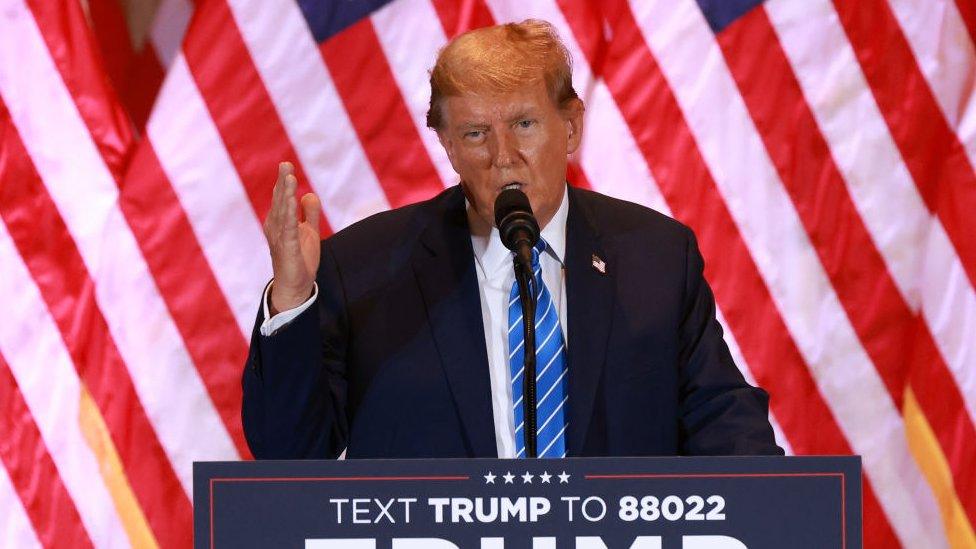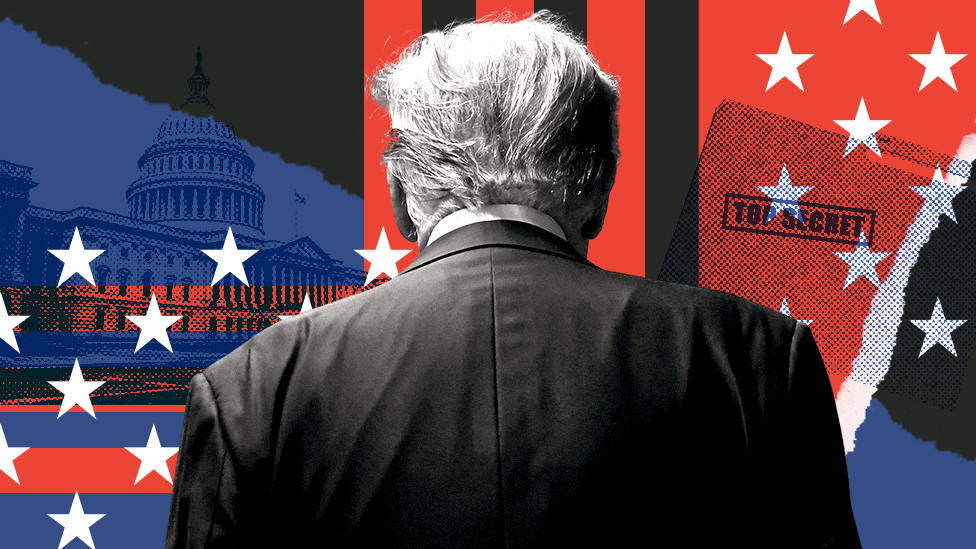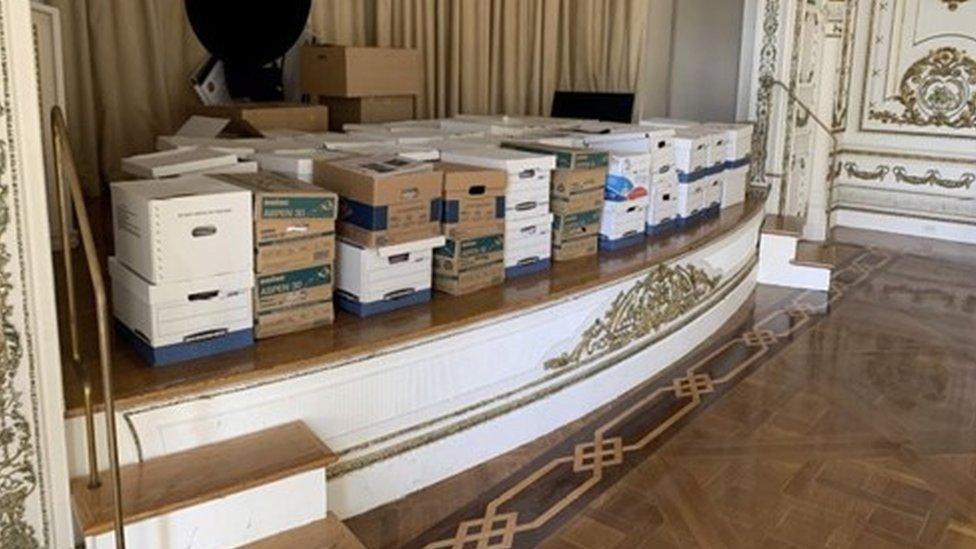Judge rejects Trump motion to dismiss classified documents case
- Published

Mr Trump has pleaded not guilty in all of the criminal cases against him
A Florida judge has rejected a motion from former US President Donald Trump to dismiss a classified documents case against him.
His attorneys argued the criminal charges under the Espionage Act were unclear.
But Judge Aileen Cannon said ruling in favour of Mr Trump would have been an "extraordinary step".
She will rule later on another Trump motion arguing that ex-presidents are shielded from record-keeping rules.
Mr Trump, who has already pleaded not guilty to 40 criminal charges in the matter, attended Thursday's hearing.
On his social media platform, Truth Social, he described the case as a witch hunt while noting that "big crowds" had shown up outside the court in Fort Pierce.
In a separate case on Thursday, Manhattan District Attorney Alvin Bragg asked for a 30-day delay in the former president's trial in New York on charges of business fraud over a hush money payment to an adult film star.
The New York trial was due to begin on 25 March, but Mr Bragg said his office needed time to examine 31,000 pages of evidence that it recently received from federal prosecutors.
In the Florida case, prosecutors allege Mr Trump retained classified documents at his Mar-a-Lago residence in Florida.
They say he obstructed the justice department's efforts to retrieve the files and turn them over to the National Archives.
At Thursday's hearing, Judge Cannon, a Trump appointee, heard a motion from his lawyers to dismiss the case on the grounds that criminal charges relating to the Espionage Act were "unconstitutionally vague".
Watch: How much do you know about classified documents?
That law makes it illegal for unauthorised people to retain national defence information.
But Judge Cannon said after the hearing that the motion was premature and should be decided during a jury trial.
In a written briefing, special prosecutor Jack Smith's team had called the Trump lawyers' argument "meritless".
The judge did not make an immediate decision on the other motion by Mr Trump's lawyers to have the case thrown out, but said she would issue a ruling "promptly".
The other motion relates to the Presidential Records Act, which requires documents to be turned over to the National Archives.
Lawyers for Mr Trump have argued that he had the right to have the documents because he had "unreviewable discretion" to designate these classified records as personal documents.
But Judge Cannon sounded sceptical of that motion, too. She suggested that the defence may have a valid argument, but that it should be tested at trial.
Mr Trump's lawyers have also filed a number of other bids to dismiss the case, which will be heard at a later date.
Both sides in the Florida case say that the trial, currently scheduled for May, will need to be postponed.
Mr Smith, the special prosecutor, would like the trial to start in July, while Mr Trump's team has suggested August.
In addition to Mr Trump, his co-defendants, aide Walt Nauta and Mar-a-Lago property manager Carlos De Oliveira, were also present during the hearing.
The former president allegedly had boxes of classified material in a shower, a bathroom, a ballroom and his bedroom at his Florida club.
Prosecutors say some of the documents covered nuclear weapons programmes and US vulnerability to military attack.
As well as the Florida and New York criminal cases, Mr Trump faces charges of election interference in Georgia.
However, that case has been delayed pending a decision about alleged conflict of interest in the prosecutor's office.
He has also been charged by special prosecutor Mr Smith with conspiracy and other crimes in Washington DC in connection with the US Capitol riot on 6 January 2021.
That case is on hold pending a US Supreme Court ruling on whether presidents are immune from criminal prosecution. The top court will hear arguments on 25 April.
Related topics
- Published28 August 2024

- Published9 June 2023
